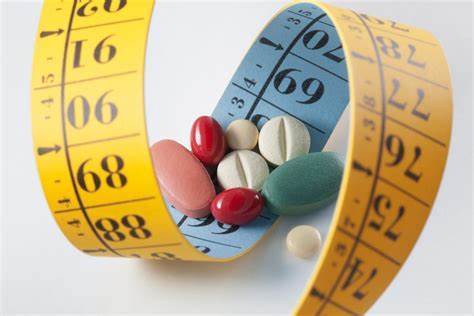Would obesity drug launch in India next year be successful?
December 11, 2024 | Wednesday | News
Emergence of Glucagon-like peptide-1 (GLP-1) agonist drugs has sparked intense debate in medical and public health circles
image credit- shutterstock
Eli Lilly plans to launch its obesity drug Mounjaro in India in 2025. India is facing an unprecedented obesity crisis that is threatening the nation's public health landscape. It ranks among the top three countries for obesity, with a staggering 70% of its population being overweight.
This epidemic is driving a surge in life-threatening medical conditions, including cardiovascular diseases, diabetes, cancer, hypertension, respiratory complications, musculoskeletal disorders, and liver-related ailments.
Amid these trends, the emergence of Glucagon-like peptide-1 (GLP-1) agonist drugs has sparked intense debate in medical and public health circles. While the interest in these treatments has sparked important conversations around the multifaceted nature of obesity, there are concerns about the frenzy surrounding the drugs and the lack of awareness about their side-effects.
These medicines may increase the risks of nausea, vomiting, diarrhoea, gallbladder disease, pancreatitis, thyroid cancer, and foetal harm. Additionally, there are concerns about treatment affordability as these cost upwards of $1,000 a month in the US; news reports suggest it may cost around Rs 15,000 a month in India.
Amid this, data reveals notable hesitation among people in the United States, where these medications have been available for a longer period, therefore the awareness about side-effects and long-term efficacy is higher.
A survey conducted by Morning Consult for the Physicians Committee for Responsible Medicine, a US-based non-profit organization focused on promoting preventive medicine, found that among Americans wanting to lose weight, 73% disagreed or strongly disagreed with the idea of taking a weight-loss injectable. The survey, conducted on Sept. 5, 2024, included 2,205 adults.
When asked to respond to the statement, "If I wanted to lose weight, I would rather take an injectable weight-loss drug than make a diet change," only 23% agreed or strongly agreed, while 62% disagreed or strongly disagreed.
Additionally, other research has shown that most people who begin the drugs discontinue their use, despite the likelihood of weight regain. In August, Blue Cross Blue Shield affiliate Prime Therapeutics reported that fewer than half of users were still using the drugs at six months and less than one-third at 12 months.
The survey also revealed that about two-thirds of respondents were interested in plant-based diets. Among those wanting to lose weight, 68% agreed or strongly agreed with the statement, "If a plant-based diet might cause significant weight loss, I would be interested in trying it, at least briefly," while 32% disagreed or strongly disagreed.
Doctors and prominent drug makers in this segment also recommend that these medicines should be taken as an adjunct to lifestyle and dietary changes. This further highlights the importance of dietary interventions such as a low-fat plant-based diet to sustainably lose weight.









